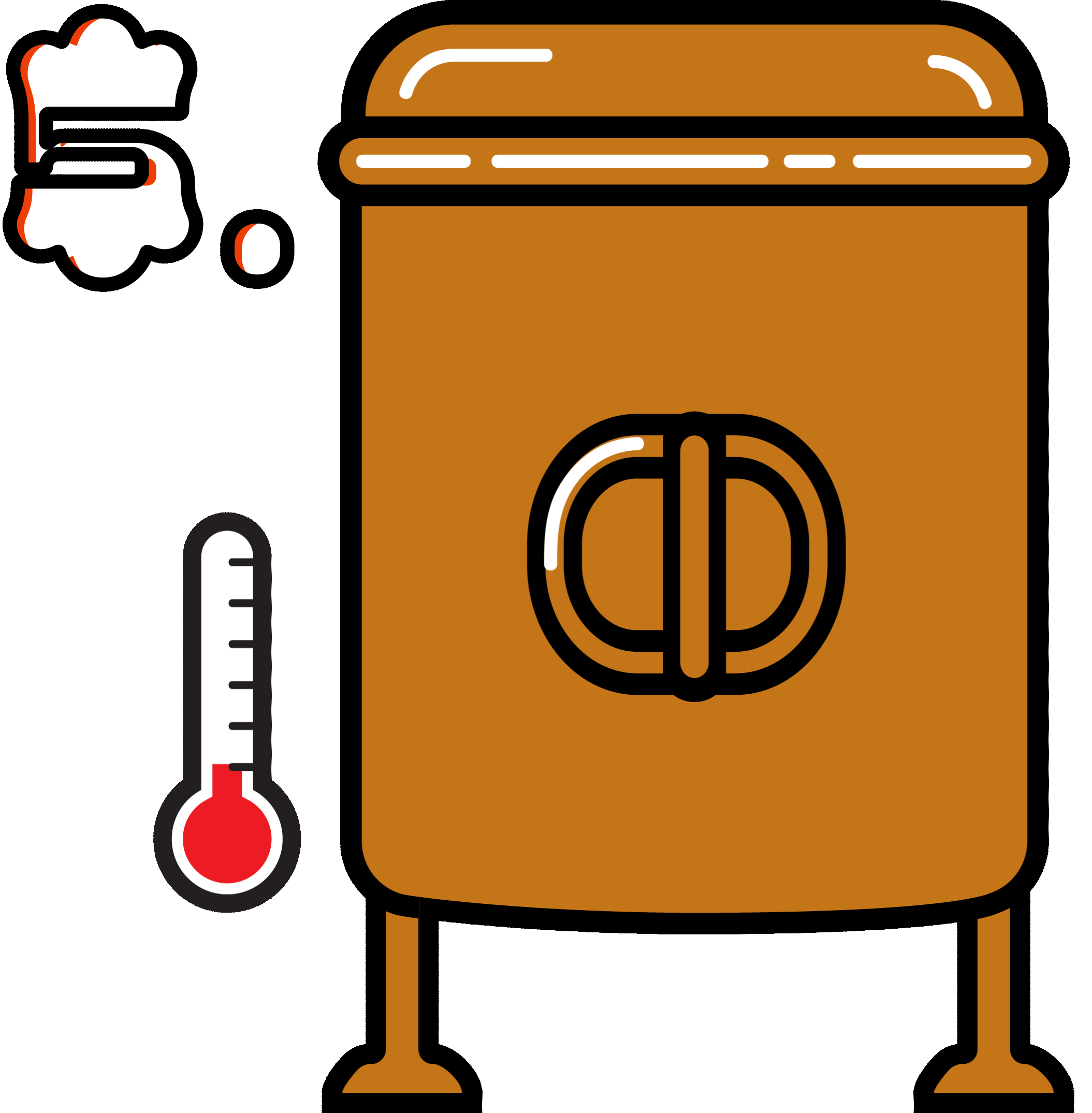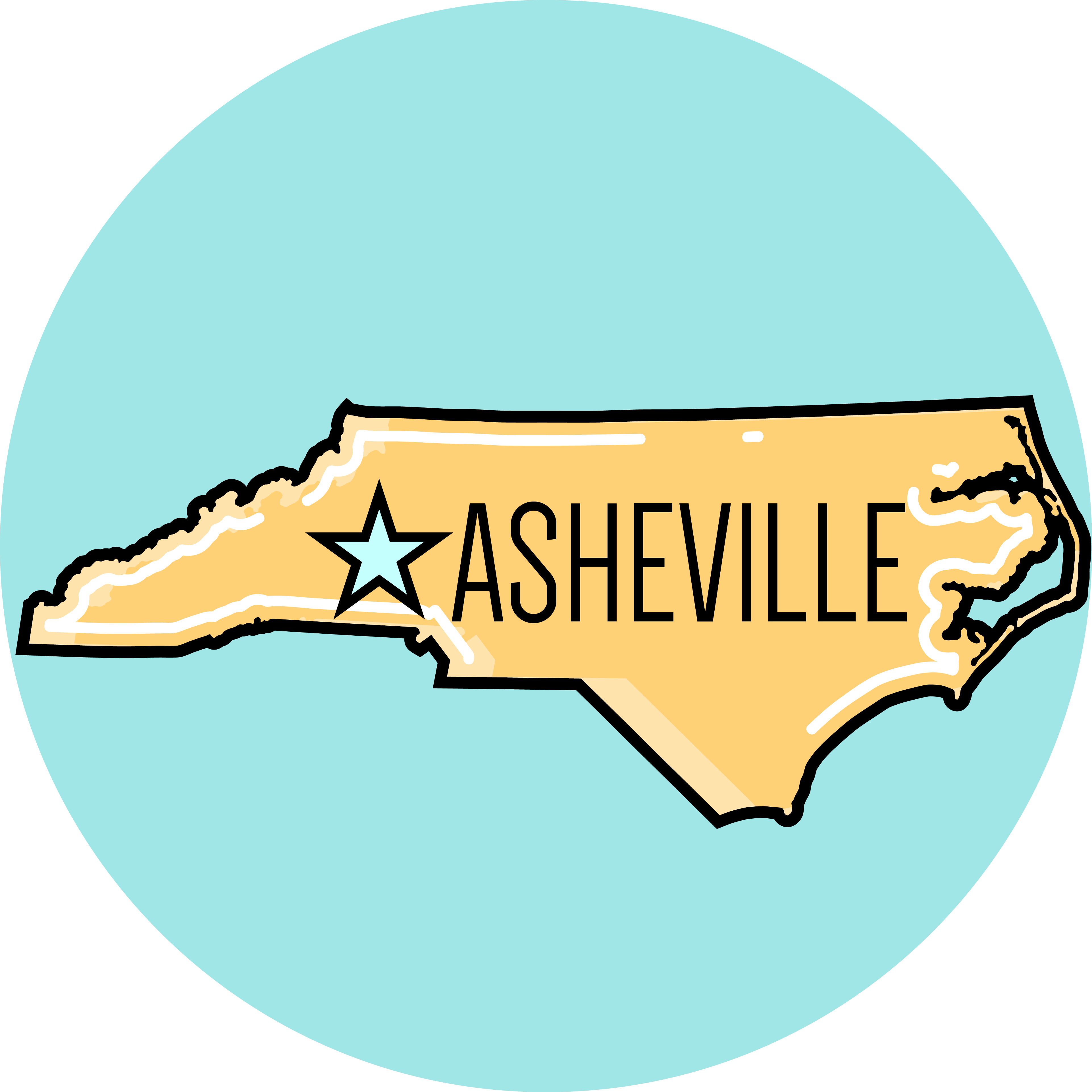




In the Blue Ridge mountains of western North Carolina, craft beer flows like the iconic waterfalls. With more microbreweries per capita than any other place in the United States, Asheville claims the title of Beer City USA. It’s not just an industrial beer machine; it’s a culture, community, and local craft.
Asheville is a growing tourist city known for its art, outdoor culture, history, local support, and recently...beer. Home to over 20 breweries, Asheville has become a brewery incubator and shows no signs of slowing down. Within the city there are breweries with recognition and distribution ranging from the local to the national level. Despite there being so many competitors in town, the breweries work together to create a sense of community rather than a rivalry. Below is a map of all of the breweries in Asheville and surrounding areas.

mostly malted barley but also other grains

grown in many different varieties such as Amarillo Hops, Cascade Hops, and Chinook Hops

responsible for fermentation; based on style-specific strains

accounts for up to 95 percent of beer's content

The first ingredient used in the brewing processess is grains. The grains are milled into the grist hopper to extract essential ingredients.The grains are then moved from the mill room through a feed auger to the mash tun.
For the craft breweries in Asheville that use malts, they source this grain from the Riverbend Malt House who provide the area’s craft brewers locally farmed, artisan malts.

Water is added in multiple stages of the brewing process. Hot water is added to the mash tun to form the mash with the grains. This process converts the grain starch to sugars. After mashing is lautering where hot water is passed over the grains to remove all sugars.
Much of Asheville's water supply originates in Black Mountain, where streams flow into the North Fork and Bee Tree Reservoirs, which provides a steady source of clean water, according to the 2013 Asheville Water Quality Report. In fact, the water quality and quantities of the WNC/Asheville region is the reason many breweries open or relocate in the area. Sierra Nevada, New Belgium, and Oskar Blues are a few of the big names that came to the area because of the water.

The solution, or wort, is extracted from the mash tun and sent to the kettle.
The wort is brought to a full rolling boil and hops are added for bitterness and aroma – giving each beer its unique profile.
A large sum of Asheville's breweries source their hops from Yakima Valley in Washington. There, they purchase field space and the entire harvest of the area becomes theirs.

The hot wort is passed through a heat exchanger where it is cooled to a temperature appropriate for the yeast to ferment. The wort is transferred to a fermentation tank where yeast is added and it is allowed to ferment, converting the sugars to alcohol and CO2. Depending on the type of beer, this process takes 14 to 30 days.
Yeast supply for Asheville area breweries originates from White Labs Asheville, the largest source of brewers yeast for an ever-growing supply of craft breweries. White Labs is a San Diego based yeast-production company. White Labs was founded in 1995 to manufacture yeast cultures and provide fermentation services to the brewing, wine and distilling industries where they most recently opened an Asheville location in January 16, 2017.

The final step before serving is conditioning. This is a period of maturation intended to impart "condition" (natural carbonation). Warm conditioning further develops the complex of flavors. Cold conditioning imparts a clean, round taste. Brewing is complete and the product is stored in a brite tank to wait to be served.

Below shows a map that displays the locations of where the majority of Asheville breweries obtain their ingredients.

North Carolina is home to nearly 100 breweries — more than any other state south of Pennsylvania and east of Texas, according to a Beer Association survey.

The "State of the Craft Beer Industry" report for 2013 shows North Carolina setting the pace for growth of new breweries with a 23 percent increase in 2011.

Three major craft breweries chose the Asheville area for East Coast expansions: Oskar Blues (Brevard), Sierra Nevada (Mills River) and New Belgium (Asheville).

With more breweries per capita than anywhere else in the U.S., Asheville was first named Beer City USA in 2009 and has swept the competition almost every year since.
